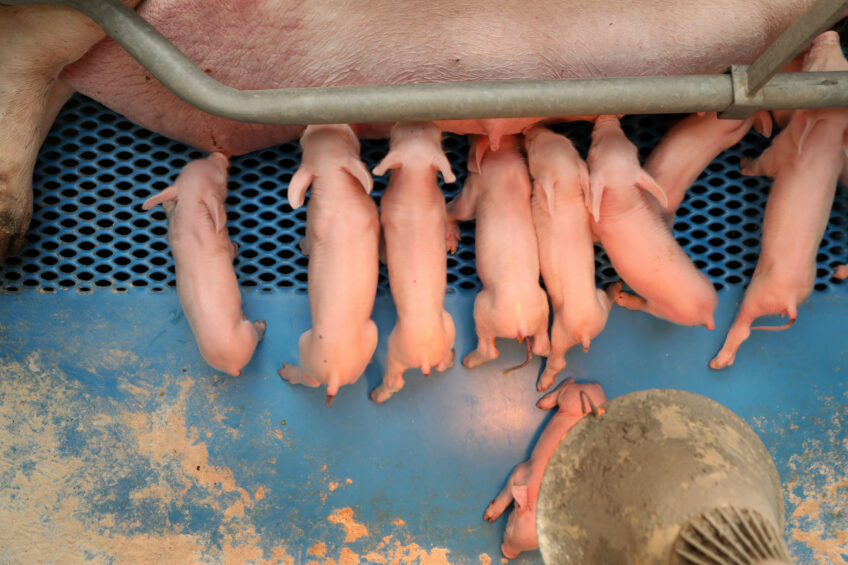Supplementing probiotics in the sow diet benefits nursery piglets

A team of Brazilian researchers evaluated the impact of the supplementation of probiotics to sows or directly to the weaned pigs in the nursery phase. They published about their findings in Frontiers in Veterinary Science.
Weaning is a critical stage with significant impact on gut health and functions. Pre-weaning strategies such as maternal supplementation of probiotics alleviate the adverse consequences of weaning and improve post-weaning performance. On the other hand, providing probiotics directly to weaned piglets is a more common strategy of probiotic supplementation. A team of Brazilian researchers compared these 2 methods.
Data collection
The team selected 200 sows in their gestation-lactation periods and divided them into control and probiotic supplementation groups. They started supplementation for sows on the first day of pregnancy which persisted until the end of lactation. From the entire group, they chose 8 sows from the control and 8 sows from the probiotic supplementation group. Then they selected 2 male piglets per sow and assigned 1 of them to the control and one of them to the probiotic supplementation group.
The team used a tested feed additive containing Lactobacillus acidophilus, Lactobacillus bulgaricus, Lactobacillus plantarum, Lactobacillus rhamnosus, Bifidobacterium bifidum, Enterococcus faecium, and Streptococcus thermophilus for both gestating-lactating sows and piglets. They collected feed, faecal and urine samples to analyse dry matter, nitrogen, and gross energy. They collected blood samples for biochemical analysis and determined gut permeability and morphology as well.
Impact on performance
Probiotic-fed sows had a higher number of piglets born alive and less stillborn and mummified piglets. In addition, piglets born from probiotic-fed sows had higher birth weight, birth weight alive, daily weight gain, and weight at the weaning.
Feed digestibility and nutrient metabolism
Piglets born from probiotic-fed sows had greater feed intake and apparent total tract digestibility of dry matter and gross energy, nitrogen intake, absorption, and retention.
Feed retention rate and faecal moisture content
Piglets born from probiotic-fed sows had a faster feed retention rate. Piglets fed the probiotic diet in the nursery and piglets born from probiotic-fed sows had lower faecal moisture.
Gut permeability
Piglets born from probiotic-fed sows had reduced gut permeability and increased jejunum breaking strength. Piglets fed the probiotic diet in the nursery had lower gut permeability and gut breaking resistance.
Serum biochemistry
Piglets born from probiotic-fed sows had greater cholesterol, albumin, and globulin levels and lower liver enzyme levels which indicates liver damage.
The authors concluded that probiotic supplementation for sows in gestation-lactation period benefits piglets in the nursery phase more than providing probiotics only in the nursery phase.











